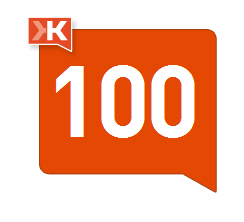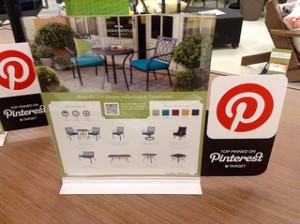 Klout is known as a tool to quantify a person’s influence online. Whether you like the way Klout measures online influence or not, the tool is useful for brands that want to connect their messages with people who have the eyes and ears of the brand’s target audience.
Klout is known as a tool to quantify a person’s influence online. Whether you like the way Klout measures online influence or not, the tool is useful for brands that want to connect their messages with people who have the eyes and ears of the brand’s target audience.
Until recently, brands could offer influencers products and experiences by awarding them Klout Perks. Now, companies can access analytics about how influencers are engaging with their brands on Facebook and Twitter with the launch of Klout for Business.
According to the official Klout for Business launch announcement, businesses can learn which topics their audiences are influencing others about, so they can deliver more focused content that drives word-of-mouth marketing. The Klout for Business dashboard will identify the influencers among the brand’s Twitter and Facebook followers along with key demographic data such as age, gender, and location.
These are just the first steps to growing Klout for Business. Tim Peterson of Adweek reports that the future of Klout for Business could include targeted advertising integrated with Facebook and Twitter and external data integration where businesses could upload their own customer data to Klout for even better targeting.
Mobile VIP Perks are already being tested where Klout users with the Klout mobile app installed on their mobile devices can be identified by the business when the enter that business’ store or physical location giving the business the opportunity to personally greet that customer or extend a special offer. Tim explains,
“Klout has tested the [Mobile VIP Perks] product with some small restaurants in San Francisco and concuted a bigger test during SXSW with Cirque du Soleil where influencers got upgraded seats for a performance. ‘It’s a really exciting feature that is getting a lot of interest from businesses. We’ll be rolling out to big partners with it soon,” [said Klout CEO Joe Fernandez].”
Klout reports that content produced by Klout influencers drives four times as many retweets on average as content posted by non-influencer social media users, and people who see content from Klout influencers are more than twice as likely to click through to an advertiser page. Furthermore, Klout claims that people who visit product pages recommended by Klout influencers spend more than twice as long on that site.
Undoubtedly, brands will be very interested in Klout for Business, and Klout is heading in the right direction by working towards offering a complete enterprise marketing platform based on its algorithmic models that analyze billions of data points to create influence scores. Once brands can integrate their own customer data with Klout data, Klout for Business should really gain traction.
What do you think of Klout? Klout for Business? Leave a comment and share your thoughts on measuring influence and marketing to that influence.
Susan Gunelius is the author of 10 marketing, social media, branding, copywriting, and technology books, and she is President & CEO of KeySplash Creative, Inc., a marketing communications company. She also owns Women on Business, an award-wining blog for business women. She is a featured columnist for Entrepreneur.com and Forbes.com, and her marketing-related articles have appeared on websites such as MSNBC.com, BusinessWeek.com, TodayShow.com, and more.
She has over 20 years of experience in the marketing field having spent the first decade of her career directing marketing programs for some of the largest companies in the world, including divisions of AT&T and HSBC. Today, her clients include large and small companies around the world and household brands like Citigroup, Cox Communications, Intuit, and more. Susan is frequently interviewed about marketing and branding by television, radio, print, and online media organizations, and she speaks about these topics at events around the world. You can connect with her on Twitter, Facebook, LinkedIn, or Google+.


